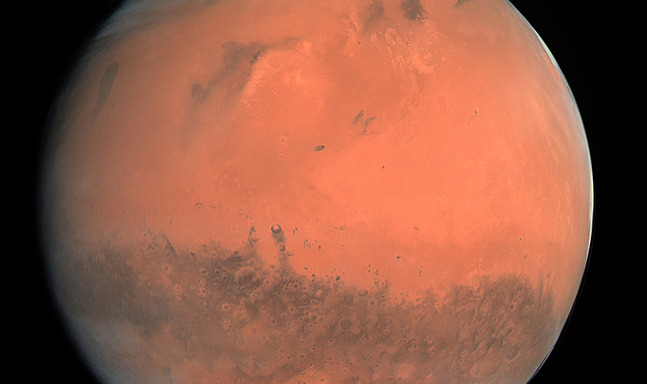Journey to the Red Planet
Rationale
By exploring conditions for human survival on Mars, we can develop a deeper understanding of the importance of sustainable living.
Big Question
What do humans need to survive on Mars?
Guiding Question/s
- How can we inspire others to build sustainable habitats?
- How can we persaude others to build sustainable habitats?
Essential Questions
- What is it like on Mars?
- Why do scientists think it is possible for humans to explore Mars in the future?
- What have we learned about Mars from robots?
- What do humans need to survive on Mars?
- What are the challenges facing humans on Mars and how might we overcome these challenges?
- How might humans live comfortably and sustainably on Mars?
Future Action
Students will have a deeper understanding of what humans need to survive and thrive. They will have a greater appreciation of the importance of sustainable living. Students will be better prepared to solve complex problems by drawing on scientific knowledge and innovating on the ideas of others.
Immersion Phase
Immersion
Your students will participate in immersion experience/s and record their ideas and questions.
Your students will participate in immersion experience/s and record their ideas and questions.
Launch Phase
Questions
Your students will develop questions to add to the classroom Wonder Wall.
Your students will develop questions to add to the classroom Wonder Wall.
Research Plan
Your students will form into their Investigation groups, select questions, and develop a plan for their research.
Your students will form into their Investigation groups, select questions, and develop a plan for their research.
Research Phase
Research
Your students will set research goals, conduct and record their research, and reflect at the end of the session.
Your students will set research goals, conduct and record their research, and reflect at the end of the session.
Synthesis Phase
Findings
Your students will share and summarise their research findings and present what they have learnt with the rest of the class.
Your students will share and summarise their research findings and present what they have learnt with the rest of the class.
Assessment
You will conduct a conference with each student to assess their understanding of the content they have learnt during their research.
You will conduct a conference with each student to assess their understanding of the content they have learnt during their research.
Collaboration Phase
Product Plan
Your students will select product/s to create in response to the guiding question of this investigation.
Your students will select product/s to create in response to the guiding question of this investigation.
Product Creation
Your students will work in their Investigation Group to create their product/s and reflect on their role during this session.
Your students will work in their Investigation Group to create their product/s and reflect on their role during this session.
Exhibition Phase
Exhibition Preparation
Your students will prepare their product/s for the exhibition.
Your students will prepare their product/s for the exhibition.
Exhibition
Your students will share their product/s at the exhibition and collect feedback from exhibition attendees.
Your students will share their product/s at the exhibition and collect feedback from exhibition attendees.
Evaluation Phase
Feedback
Your students will analyse feedback they received from the attendees of the exhibition, conduct self-assessment using rubrics, and reflect on social skills.
Your students will analyse feedback they received from the attendees of the exhibition, conduct self-assessment using rubrics, and reflect on social skills.
Future Action
Your students will reflect on what they have learnt during this investigation, consider the Habits they have practised, and revisit questions on the Wonder Wall.
Your students will reflect on what they have learnt during this investigation, consider the Habits they have practised, and revisit questions on the Wonder Wall.


